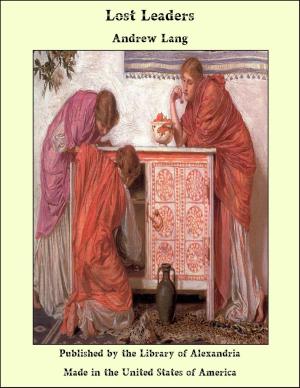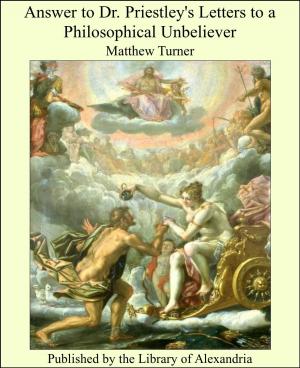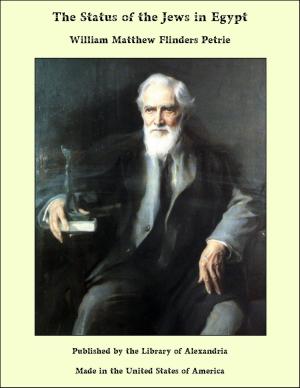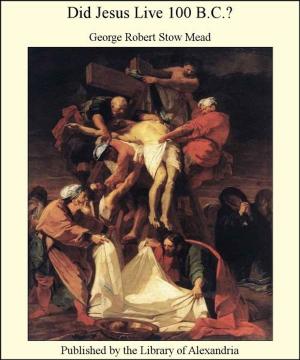Curiosities of Medical Experience
Nonfiction, Religion & Spirituality, New Age, History, Fiction & Literature| Author: | J. G. Millingen | ISBN: | 9781465521750 |
| Publisher: | Library of Alexandria | Publication: | March 8, 2015 |
| Imprint: | Language: | English |
| Author: | J. G. Millingen |
| ISBN: | 9781465521750 |
| Publisher: | Library of Alexandria |
| Publication: | March 8, 2015 |
| Imprint: | |
| Language: | English |
The rapid sale of The first edition of this work has induced The publisher to reprint it with considerable additions in a less expensive, and more concise form—and The author embraces this opportunity, gratefully to acknowledge The liberality with which it has been received, and The indulgence shown to its many imperfections. At The same time he cannot but regret, that in some quarters it has been surmised that he yielded credence to The many strange relations which he has recorded from various medical works, but which he merely narrated, to show The fallacy even of experience, and The many dangers that may arise from The most ingenious Theories and doctrines, in The very ratio of Their apparent plausibility. Although These sketches were not intended for The profession, yet They may prove of some utility to The pupil who commences The arduous study of medicine. They may convince him, that great names, however justly respected and renowned, do not constitute a sufficient basis, on which to rest a satisfactory and conclusive judgment; and, as Locke has justly observed, that “reverence or prejudice must not be suffered to give beauty or deformity to any of Their opinions.” He will find that of which Further experience will subsequently convince him, that medical investigation is too often founded upon analogy and hypoThesis—but let not this painful and disheartening impression arrest his progress, or deter him from seeking to assist his judgment by collecting “The scattered parts of truth,” for in speaking of hypoThesis, Dr. Crichton has thus expressed himself: “There is a period in knowledge, when it must be indulged in if we mean to make any progress; it is that period when The facts are too numerous to be recollected without general principles, and yet, where The facts are too few to constitute a valid Theory. If The exterior form of an edifice is often The principal motive with men for examining its internal structure; so it is in science, that The splendour of an hypoThesis, and The desire of proving its solidity, are more frequent motives for research than a mere love of knowledge.”
The rapid sale of The first edition of this work has induced The publisher to reprint it with considerable additions in a less expensive, and more concise form—and The author embraces this opportunity, gratefully to acknowledge The liberality with which it has been received, and The indulgence shown to its many imperfections. At The same time he cannot but regret, that in some quarters it has been surmised that he yielded credence to The many strange relations which he has recorded from various medical works, but which he merely narrated, to show The fallacy even of experience, and The many dangers that may arise from The most ingenious Theories and doctrines, in The very ratio of Their apparent plausibility. Although These sketches were not intended for The profession, yet They may prove of some utility to The pupil who commences The arduous study of medicine. They may convince him, that great names, however justly respected and renowned, do not constitute a sufficient basis, on which to rest a satisfactory and conclusive judgment; and, as Locke has justly observed, that “reverence or prejudice must not be suffered to give beauty or deformity to any of Their opinions.” He will find that of which Further experience will subsequently convince him, that medical investigation is too often founded upon analogy and hypoThesis—but let not this painful and disheartening impression arrest his progress, or deter him from seeking to assist his judgment by collecting “The scattered parts of truth,” for in speaking of hypoThesis, Dr. Crichton has thus expressed himself: “There is a period in knowledge, when it must be indulged in if we mean to make any progress; it is that period when The facts are too numerous to be recollected without general principles, and yet, where The facts are too few to constitute a valid Theory. If The exterior form of an edifice is often The principal motive with men for examining its internal structure; so it is in science, that The splendour of an hypoThesis, and The desire of proving its solidity, are more frequent motives for research than a mere love of knowledge.”















